Pick of the BBC Proms 2019 | reviews, news & interviews
Pick of the BBC Proms 2019
Pick of the BBC Proms 2019
Our classical music/opera reviewers choose their favourites from the next eight weeks
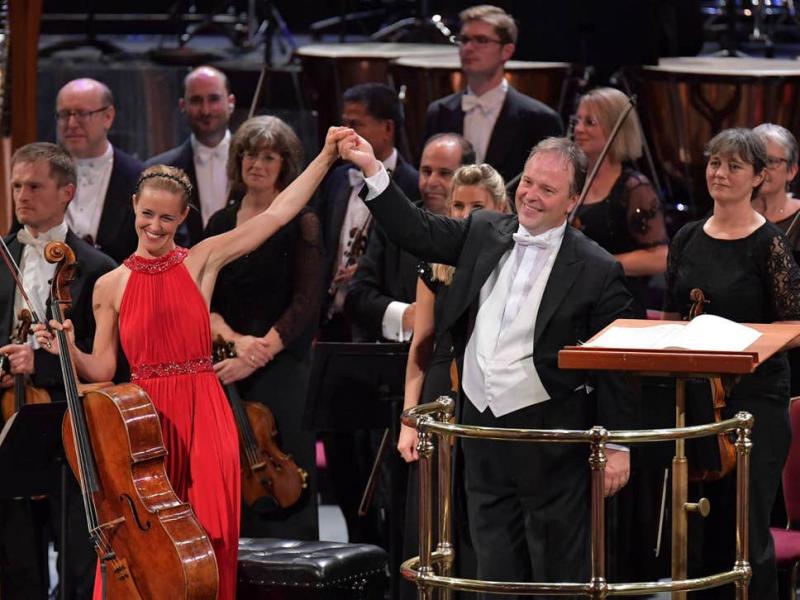
It's been much the same trajectory over the past few years for many of us: look through the Proms prospectus, feel a bit disappointed that there isn't more of the rich and rare, be won round when it comes to the performances.
Always remember, too, that for many it will be a first time, and - if the newcomer is well advised - from the best place in the entire, capricious Royal Albert Hall, acoustically speaking, standing in the Arena for £6 a throw (less if you buy a season ticket). And don't believe any nonsense about dumbing-down; as the biggest music festival in the world, the Proms is/are a broad church, and if more popular events bring folk to the staple repertoire, so much the better. Here our reviewers find plenty for which to be thankful.
RICHARD BRATBY
The Proms website proudly tells us that Sir Henry Wood gave the UK premiere of Glazunov’s Fifth Symphony at the 1897 Proms. It fails to add "and we’ve never touched it since". Well, better late than never, though when you hear Vladimir Jurowski and the LPO perform this instantly appealing, gloriously colourful symphony at the climax of a lovely Imperial Russian programme (Prom 41, August 17), you might find yourself wondering why it took so long.
If you’re searching for the defining conductor-orchestra partnerships of the next decade – and if, like me, you detected a troubling sliver of ice in Kirill Petrenko’s performances with the Berlin Phil last year [I certainly didn't - music ed.] – Prom 47 (23 August) should get you back on track, as Andris Nelsons finally brings his Leipzig Gewandhaus Orchestra to the Proms. Expect a Bruckner Eight that comes straight from the heart, and speaks straight to the heart: Furtwängler-like formal command, uncompromising emotional honesty, and playing of soul-shaking beauty.
ALEXANDRA COGHLAN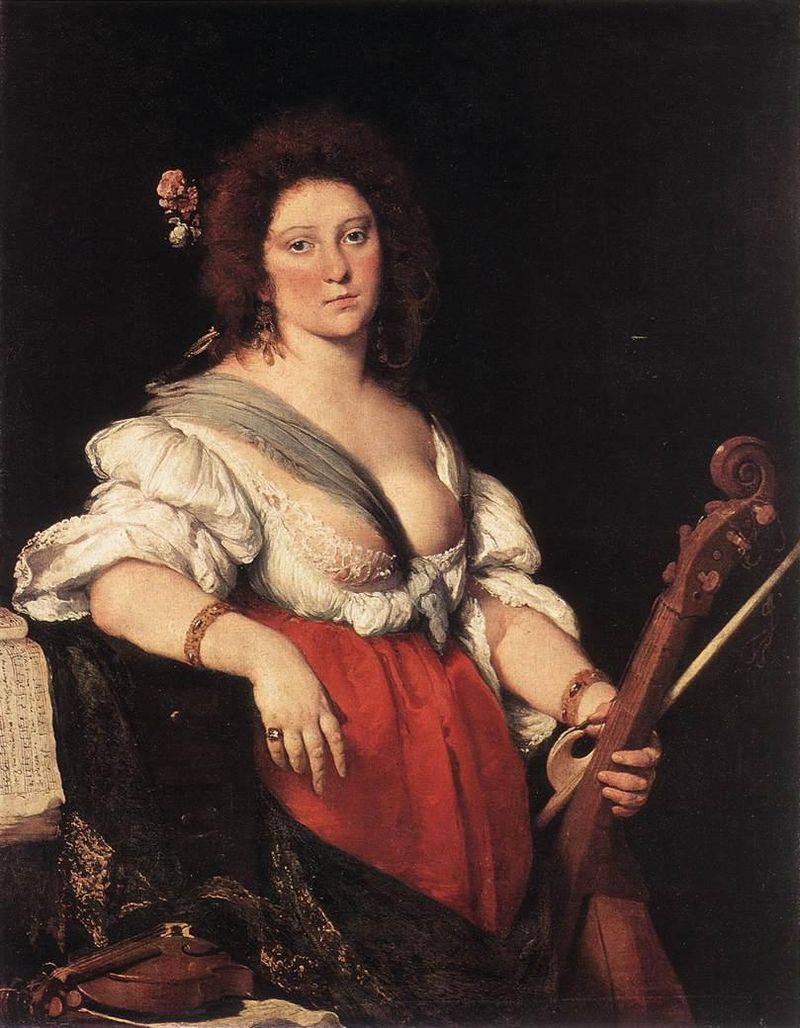 There are plenty of big anniversaries in the spotlight at the Proms this year – Berlioz chief among them. Less lauded but no less fascinating a musical maverick, as much ahead of her time as France’s Romantic hero, Barbara Strozzi (pictured left in the portrait by Bernardo Strozzi) is another composer who knows how to paint the extremes of human emotion. 400 years since this pioneering Venetian composer’s birth, Strozzi’s songs speak tellingly of love, grief, jealousy, loss and desire. In Proms at...Cadogan Hall 2 (29 July), Leonardo Garcia Alarcon and Capella Mediterranea are joined by soprano Mariana Flores for a musical tribute that opens the window just a chink onto Strozzi’s richly shaded musical world.
There are plenty of big anniversaries in the spotlight at the Proms this year – Berlioz chief among them. Less lauded but no less fascinating a musical maverick, as much ahead of her time as France’s Romantic hero, Barbara Strozzi (pictured left in the portrait by Bernardo Strozzi) is another composer who knows how to paint the extremes of human emotion. 400 years since this pioneering Venetian composer’s birth, Strozzi’s songs speak tellingly of love, grief, jealousy, loss and desire. In Proms at...Cadogan Hall 2 (29 July), Leonardo Garcia Alarcon and Capella Mediterranea are joined by soprano Mariana Flores for a musical tribute that opens the window just a chink onto Strozzi’s richly shaded musical world.
The Royal Albert Hall isn’t a natural fit for early music, but it’s still good to see some baroque repertoire back in the main schedule, rather than all exiled to lunchtimes and satellite venues. Following on from Israel in Egypt and Theodora, Jephtha is the third in the Proms ongoing series of Handel oratorios (Prom 55, 30 August). The last the composer would write, there’s an emotional clarity and directness to a piece about faith and sacrifice that rarely fails to hit its mark. No period band this year, instead Richard Egarr conducts the Scottish Chamber Orchestra with a starry team of soloists led by Allan Clayton in the title role (who could resist the prospect of his “Waft her, Angels”?) and Jeanine de Bique as his daughter Iphis.
GAVIN DIXON
The centenary of Mieczysław Weinberg’s death coincides with a huge reappraisal of his music. Like many of his works, the dramatic and distinctive Cello Concerto is already on an accelerated course towards repertory status, and Sol Gabetta seems an ideal proponent for the work’s London premiere (Prom 25, 6 August). There is also another Weinberg London premiere later in the season, with the CBSO performing his Third Symphony (see Boyd Tonkin's choice below). Semyon Bychkov was a surprising but inspired choice to take over the Czech Philharmonic, following the untimely death of Proms favourite Jiří Bělohlávek. Prom 69 (10 September) plays to their strengths and to his - Smetana is in the orchestra’s blood, and Bychkov is always in his element with Tchaikovsky and Shostakovich.
JESSICA DUCHEN
The West-Eastern Divan Orchestra’s visits to the Proms with its co-founder Daniel Barenboim are always notable events. Add to the mix, though, the legendary Martha Argerich playing Tchaikovsky's First Piano Concerto and a second half devoted to Lutosławski’s fabulous Concerto for Orchestra and Prom 34 (12 August) should be absolutely unmissable. 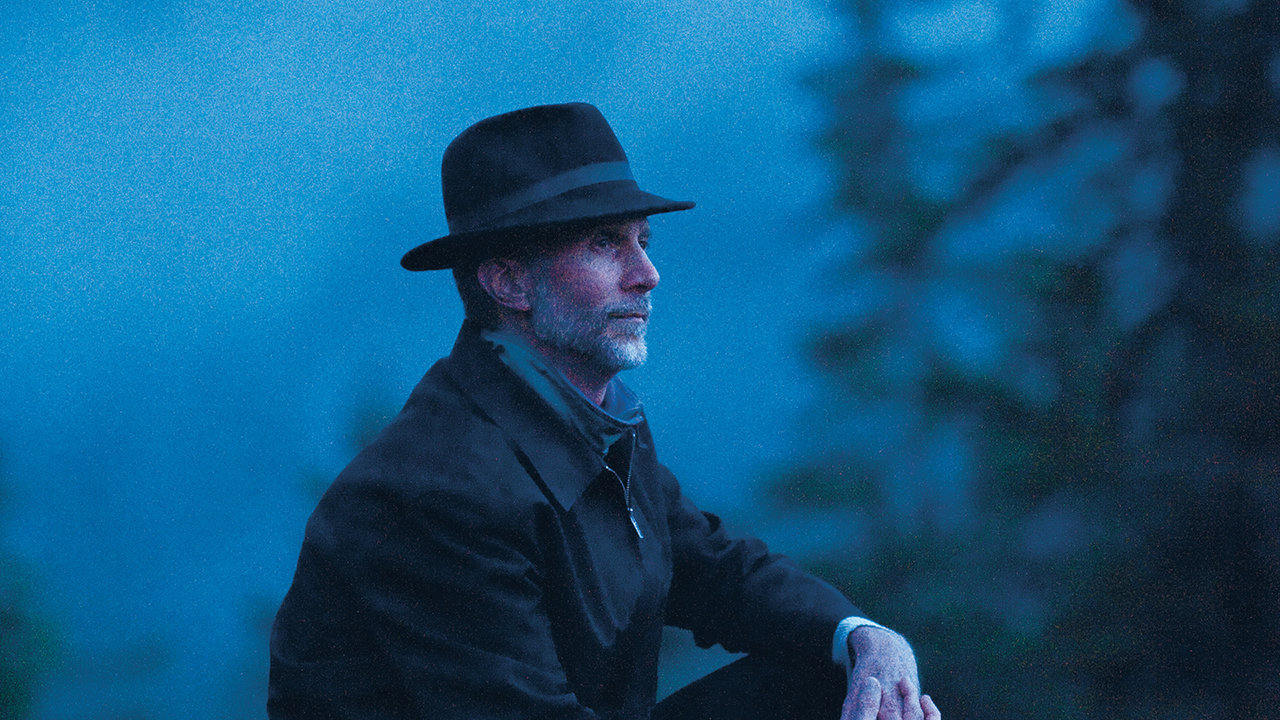 The American composer John Luther Adams (pictured above by Donald Lee) has devoted much of his output to works that celebrate the wonders of nature and mark the dangers of climate change, writing on a gigantic scale and drawing plaudits from all corners of the world, including a Pulitzer Prize. Prom 66 (8 September) sees the European premiere of In the Name of the Earth, celebrating rivers, lakes, mountains and deserts, and it involves eight different choirs - more than 600 performers - placed around the auditorium. In the Royal Albert Hall the effect should be astonishing. Audience members are invited to join in.
The American composer John Luther Adams (pictured above by Donald Lee) has devoted much of his output to works that celebrate the wonders of nature and mark the dangers of climate change, writing on a gigantic scale and drawing plaudits from all corners of the world, including a Pulitzer Prize. Prom 66 (8 September) sees the European premiere of In the Name of the Earth, celebrating rivers, lakes, mountains and deserts, and it involves eight different choirs - more than 600 performers - placed around the auditorium. In the Royal Albert Hall the effect should be astonishing. Audience members are invited to join in.
MIRANDA HEGGIE
A towering figure in British contemporary music, Oliver Knussen tragically passed away suddenly last year. Proms at... Cadogen Hall 8 (9 September) pays tribute to the prolific composer in this hour long programme featuring three of his works, alongside music by other British contemporary composers including Sir Harrison Birtwistle and Freya Waley-Cohen.
One of the most exciting chamber orchestras working today, Aurora Orchestra bring Berlioz's crazed Symphonie fantastique to the Royal Albert Hall - from memory (Proms 72 and 73, 12 September). Whether this is a particularly responsible idea remains to be seen, but it should certainly add a further frisson to the music, and with theatrical staging - newly devised by the orchestra - this is set to be a pretty spectacular Prom.
BERNARD HUGHES
I am very disappointed not to be able to hear Edward Gardner conduct the students of the Royal Academy of Music and the Juilliard School in an exciting-looking programme of Stravinsky's The Rite of Spring, Britten’s Violin Concerto played by James Ehnes and the UK premiere of Anna Thorvaldsdottir’s intriguing and haunting Metacosmos (Prom 6, 22 July). 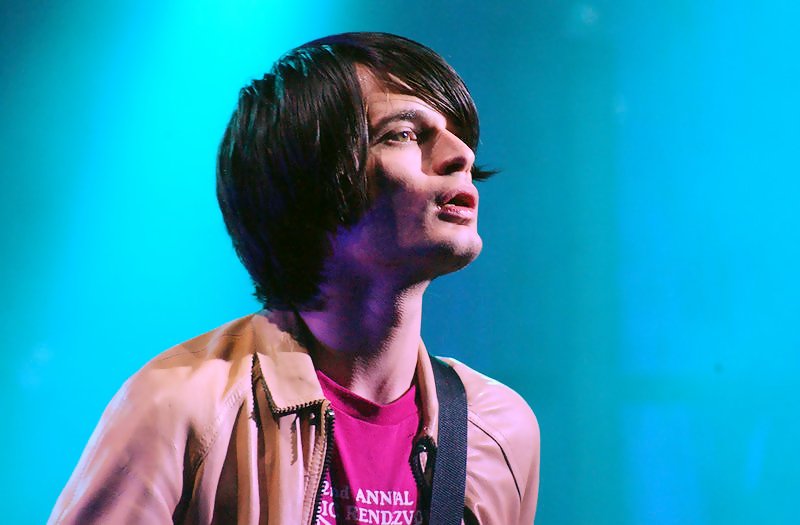 At the other end of the season the late-night Prom 70 (10 September) is curated by Radiohead guitarist and composer Jonny Greenwood (pictured above by Zach Klein), and explores ideas and textures of electronic music in acoustic form, ranging from Biber to Penderecki, and culminating in the world premiere of Greenwood’s Horror vacui for solo violin and 68 strings.
At the other end of the season the late-night Prom 70 (10 September) is curated by Radiohead guitarist and composer Jonny Greenwood (pictured above by Zach Klein), and explores ideas and textures of electronic music in acoustic form, ranging from Biber to Penderecki, and culminating in the world premiere of Greenwood’s Horror vacui for solo violin and 68 strings.
DAVID NICE
Nothing shows more astoundingly how the making of a symphony which seems utterly organic can sometimes be the process of years than the difference between Sibelius's original Fifth Symphony of 1915 and the standard version from 1919 we all know and love. What shocks in the relatively-recently unearthed first version? No cloudburst climax in the middle of what is usually the two-part first movement, instead a full stop before the material is reworked as scherzo, and tremolos between those famous last chords wihich always sound as if they were made to have only the equally famous silences in between - extraordinary! It will be the first time I've heard Sibelius's first thoughts live, from one of his most electrifying interpreters, Thomas Dausgaard and a BBC Scottish Symphony Orchestra on peak form (Prom 20, 3 August) before Sakari Oramo and the BBC Symphony Orchestra reprise an interpretation of the truly famous Fifth (Prom 67, 8 September) that, first time round in the Barbican Sibelius cycle, was the deepest and most satisfying I've heard. Three cheers to the two orchestras.
PETER QUANTRILL
Any opportunity to see Berlioz's Benvenuto Cellini shouldn’t be missed – for the absurd opulence of its orchestral writing, the breathtaking virtuosity of its choruses, the knockout tenor arias for the title role and the unapologetically autobiographical narrative of a genius thwarted in love and work by critics and puritans. When the piece is being put on – for the first time in the UK – by surely our greatest living Berliozian, Sir John Eliot Gardiner (Prom 59, 2 September), it’s time to celebrate. 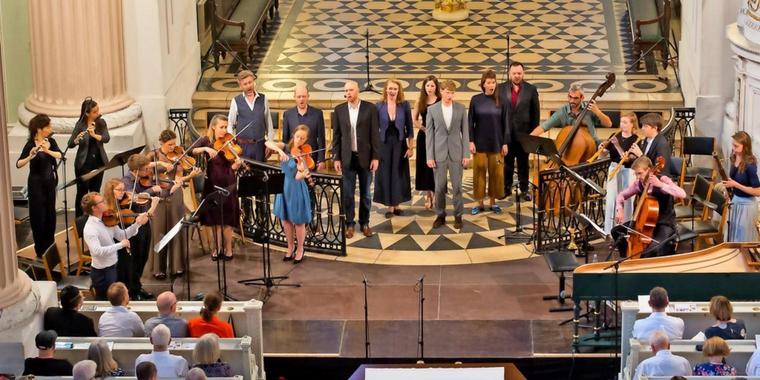 Gardiner has done as much as anyone to expand a popular appreciation of Bach’s cantatas beyond the top 10, the likes of "Wachet auf" and "Ich habe genug". Now younger early-music collectives are taking up the baton – foremost among them Solomon’s Knot, who give a late-night Prom of four crackers from Bach’s golden-period of cantata writing while Kapellmeister at the Church of St Thomas in Leipzig (Prom 38, 14 August. Pictured above: Solomon's Knot performing the 1725 version of Bach's St John Passion in the Nikolaikirche, Leipzig). They round the evening off with the five-minute explosion of contrapuntal life-force that is "Nun is das Heil und die Kraft".
Gardiner has done as much as anyone to expand a popular appreciation of Bach’s cantatas beyond the top 10, the likes of "Wachet auf" and "Ich habe genug". Now younger early-music collectives are taking up the baton – foremost among them Solomon’s Knot, who give a late-night Prom of four crackers from Bach’s golden-period of cantata writing while Kapellmeister at the Church of St Thomas in Leipzig (Prom 38, 14 August. Pictured above: Solomon's Knot performing the 1725 version of Bach's St John Passion in the Nikolaikirche, Leipzig). They round the evening off with the five-minute explosion of contrapuntal life-force that is "Nun is das Heil und die Kraft".
GRAHAM RICKSON
Public Service Broadcasting’s album The Race for Space is a work of art, a joyous homage to a decade when everything, scientifically at least, seemed possible. Quite how it will all sound with a live orchestra interacting with the samples and vintage electronica is anyone’s guess, though I’ll be tuning in for Prom 10, 25 July. to find out. And I’m also looking forward to Sakari Oramo’s BBC Symphony forces tackling Messiaen’s awe-inspiring Des canyons aux étoiles in Prom 13, 28 July. Where else will you get to hear the geophone, a percussion instrument invented by the composer specifically for this piece?
BOYD TONKIN
Why should the greatest Christmas pieces have to take an enforced break for eleven months of the year? Even on the sultriest of summer nights, it ought to be a treat to hear this stellar line-up of soloists – the wonderful Julie Boulianne replacing Sarah Connolly (who has just gone public with the devastating news of impending surgery for breast cancer - we wish her the speediest recovery), Roderick Williams, Allan Clayton, Neal Davies – tell the Gospel stories in the unfailingly fresh and (wonderfully) eccentric settings of Berlioz's The Childhood of Christ (Prom 37, 14 August). With them will be Mark Elder and the Hallé, whose recent Proms have both dazzled and moved. 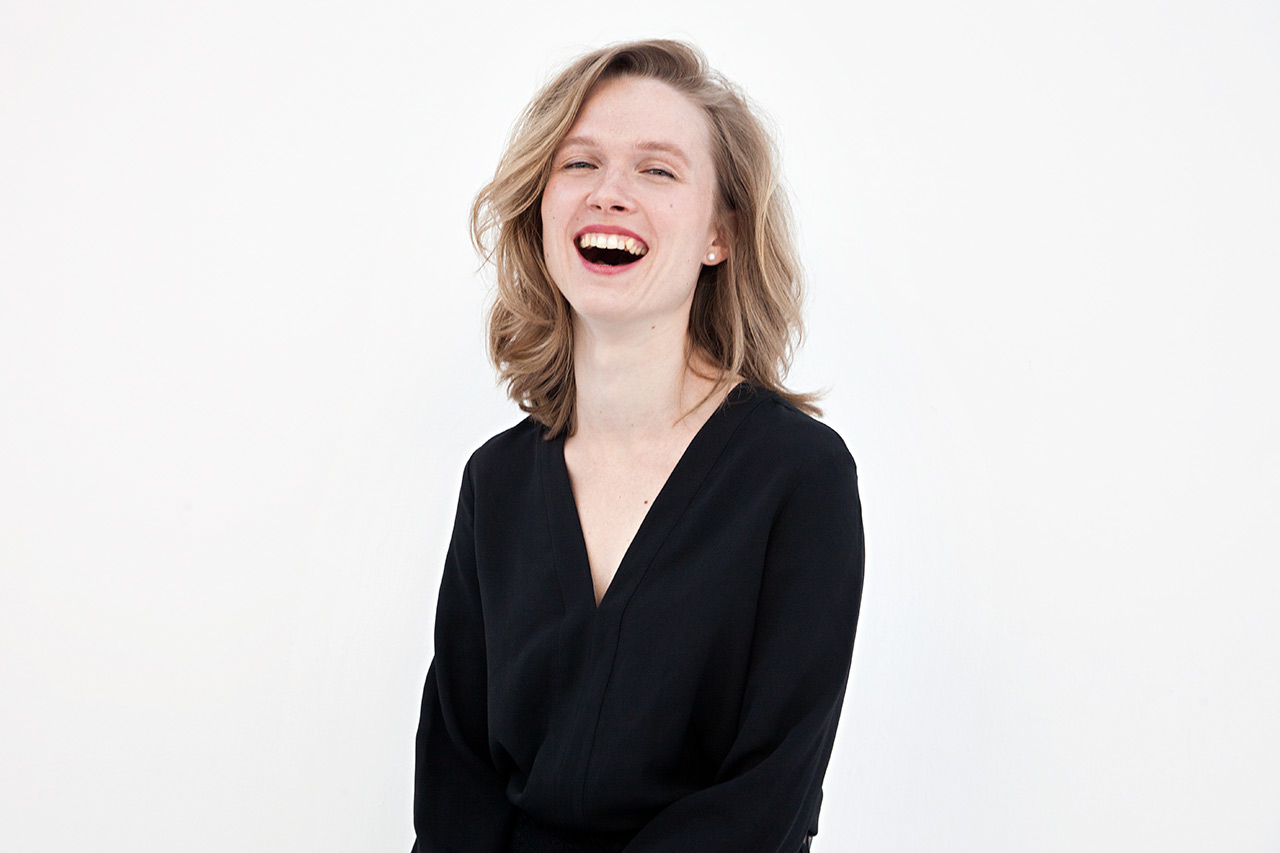 Mirga Gražynite-Tyla’s storming form with the CBSO (the conductor pictured above by Frans Jansen) augurs well for an evening that combines the Third Symphony of Mieczysław Weinberg – whose music she has championed so eloquently – with the more familiar terrain of Elgar’s Cello Concerto (Prom 46, 22 August). Sheku Kanneh-Mason should of course shine here, but I’m looking forward too to Dorothy Howell’s 1919 tone-poem Lamia and a suite from the much-lamented Oliver Knussen.
Mirga Gražynite-Tyla’s storming form with the CBSO (the conductor pictured above by Frans Jansen) augurs well for an evening that combines the Third Symphony of Mieczysław Weinberg – whose music she has championed so eloquently – with the more familiar terrain of Elgar’s Cello Concerto (Prom 46, 22 August). Sheku Kanneh-Mason should of course shine here, but I’m looking forward too to Dorothy Howell’s 1919 tone-poem Lamia and a suite from the much-lamented Oliver Knussen.
STEPHEN WALSH
As usual there are plenty of Proms I’d like to go to part of, not so many I’d care to hear from end to end. One exception is Haitink’s combination of Beethoven’s Fourth Piano Concerto (soloist, Murray Perahia) and Bruckner’s Seventh Symphony (Prom 60, 3 September), with the Vienna Philharmonic, a prospect of eye-watering perfection, not only in the works, but in the performers. Another, completely different, is Voces8’s programme (Proms at...Cadogan Hall 1, 22 July), a subtly planned mixture of the medieval (Hildegard of Bingen, Pérotin), early Renaissance (Josquin, Jean Mouton), high polyphony (Victoria, Lassus, Palestrina, Byrd), and a pair of modern items including a new work by Alexia Sloane. It will be interesting to see if the new music can stand comparison with the supreme quality of the old, or will it just be light relief?
- Starting tomorrow (Friday 19 July), all BBC Proms are broadcast live on BBC Radio 3, with many televised. Full listings here
- Read more classical reviews on theartsdesk
Explore topics
Share this article
The future of Arts Journalism
You can stop theartsdesk.com closing!
We urgently need financing to survive. Our fundraising drive has thus far raised £49,000 but we need to reach £100,000 or we will be forced to close. Please contribute here: https://gofund.me/c3f6033d
And if you can forward this information to anyone who might assist, we’d be grateful.

Subscribe to theartsdesk.com
Thank you for continuing to read our work on theartsdesk.com. For unlimited access to every article in its entirety, including our archive of more than 15,000 pieces, we're asking for £5 per month or £40 per year. We feel it's a very good deal, and hope you do too.
To take a subscription now simply click here.
And if you're looking for that extra gift for a friend or family member, why not treat them to a theartsdesk.com gift subscription?

Add comment